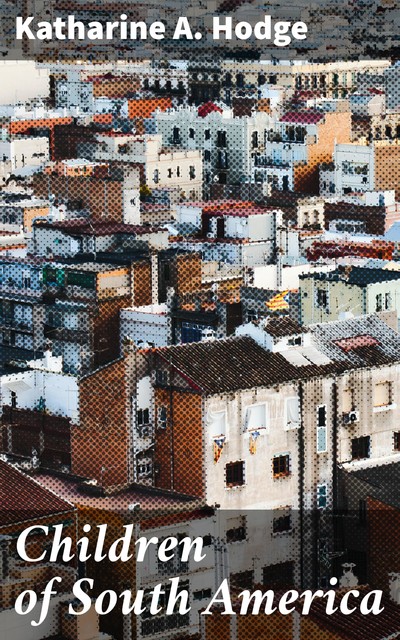We use cookies to improve the Bookmate website experience and our recommendations.
To learn more, please read our Cookie Policy.
To learn more, please read our Cookie Policy.
Accept All Cookies
Cookie Settings
Katharine A. Hodge
Children of South America
In “Children of South America,” Katharine A. Hodge embarks on a poignant exploration of the diverse childhood experiences across the continent, deftly weaving together rich narratives that highlight the cultural, social, and economic factors shaping the lives of South American children. The book employs an evocative literary style, utilizing vivid imagery and emotive language that captures the nuances of childhood in various regions, from the Andes to the Amazon. Hodge meticulously situates her work within the broader context of global childhood studies, allowing for a comparative analysis that illuminates the universal themes of resilience, identity, and hope amidst adversity. Hodge, an anthropologist and educator with a deep commitment to social justice, draws from her extensive fieldwork in several South American communities. Her previous experiences working with NGOs and grassroots initiatives have endowed her with a profound understanding of the issues confronting young people in these regions, including poverty, education, and cultural preservation. This background informs her insightful commentary and empathetic portrayal of her subjects, making her exploration both academically rigorous and deeply personal. “Children of South America” is essential reading for anyone interested in child development, anthropology, or Latin American studies. Hodge's thoughtful narrative invites readers to engage with the stories of children often overlooked in mainstream discourse, fostering a greater awareness and appreciation for the rich tapestry of South American childhood. This work not only informs but also inspires, making it a valuable addition to both academic and personal libraries.
more
93 printed pages
- Copyright owner
- Bookwire
- Original publication
- 2021
- Publication year
- 2021
- Publisher
- Good Press
Have you already read it? How did you like it?
👍👎
fb2epub
Drag & drop your files
(not more than 5 at once)


